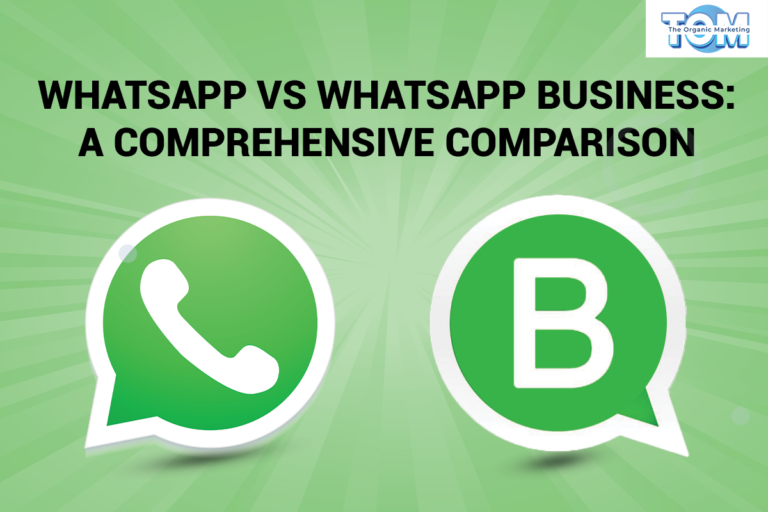The Essential Role of Social Media Management for Brand Building
In the contemporary digital era, social media has triumphed over every aspect of our existence. The way we interact, communicate, and consume information has changed as a result. Businesses, both big and small, have recognized the immense potential of social media platforms in reaching their target audience and building brand awareness. However, successful social media management calls for more than simply sporadic updates. Social media management becomes very important in this situation.
How do you manage social media?
The term “social media management” describes the process of producing, planning, analyzing, and interacting with information shared on a variety of social media sites, including Facebook, Twitter, Instagram, LinkedIn, and more. It entails creating a thorough plan, creating engaging content, keeping an eye on comments, and calculating the effect of social media activities.
How Important Is Social Media Management?
- Creating a Powerful Online Presence: Businesses may build a strong online presence with the help of social media management. It gives them the chance to present their brand’s personality, values, and product offers to a large audience. Businesses may establish credibility and win the confidence of their target audience by offering pertinent and interesting material on a regular basis.
- Brand Awareness Boosting: Platforms for social media provide unrivalled visibility and reach. Businesses may boost their brand exposure by reaching a wider audience through efficient social media management. By combining relevant high-quality content with clever hashtags and eye-catching pictures, businesses can increase the reach of their brand and draw in new clients.
- Making Customers More Engaged: Direct connection and involvement with clients are made easier by social media management. By constantly tracking and reacting to comments, messages, and mentions, businesses may establish deep ties with their audience. This interaction increases brand advocacy, consumer happiness, and loyalty.
- Conversion-Driven Website Traffic: The promotion of a company’s website on social media is one of its main objectives. Businesses may increase the likelihood of conversions and purchases by directing consumers to their website by publishing appealing content and incorporating pertinent links. Social media sites also provide a variety of advertising possibilities that may be used to attract specific audiences.
- Researching the Market: Platforms on social media are useful tools for doing market research. Through social listening and monitoring, businesses may learn more about the preferences, viewpoints, and trends of their customers. Utilising this data can help you improve your goods and services, spot new business prospects, and beat out the competitors.
- Monitoring and Evaluating Results: Monitoring and evaluating the results of social media activities is essential to effective social media management. Businesses may evaluate the performance of their social media operations by looking at measures like engagement, reach, click-through rates, and conversions. Social media tactics may be continuously improved and optimized using this data-driven approach.
- Staying Abreast of the Competition: In today’s competitive environment, companies cannot afford to ignore social media. Businesses may distinguish themselves from the competition by implementing an active and effective social media management plan. Businesses may stand out from the competition and draw in their target audience by keeping up with industry trends, keeping an eye on rivals’ actions, and producing original content.
Difficulties Faced in Social Media Management and How to Overcome Them
Although it has its drawbacks, social media management can be a potent tool for businesses. The following list of typical challenges in social media management, along with solutions, includes:
Management of time:
- Challenge: Managing social media may take a lot of effort, especially when working with various platforms and producing captivating content.
- Solution: Organise and schedule material on social media in advance utilising management tools. Make a content calendar, schedule posts automatically, and set aside time for engagement. When it’s feasible, outsource or assign work.
Creating Content:
- Challenge: It can be difficult to constantly produce high-caliber, original material.
- Solution: To understand the interests and preferences of your audience, conduct in-depth market research. Plan your content strategy and generate ideas for content. Work with influencers, repurpose current material, and promote user-generated content. Utilise design and content production tools.
Audience Participation:
- Challenge: It might be challenging to elicit responses from your audience, get them to interact with your material, and help them form a community.
- Solution: Answer questions, mails, and comments as soon as possible. Encourage discussion, pose inquiries, and actively engage in comments. Run interactive campaigns, polls, and contests. When communicating, be genuine and specific.
Managing Negative Feedback:
- Challenge: Dealing with negative comments, reviews, or feedback on social media can be challenging and potentially damaging to your brand’s reputation.
- Solution: Monitor social media channels regularly to identify and address negative feedback promptly. Respond calmly and professionally, addressing concerns and offering solutions. Take the conversation offline if necessary. Use negative feedback as an opportunity to showcase your brand’s commitment to customer satisfaction.
Analytics and ROI evaluation:
- Challenge: It can be difficult to evaluate social media initiatives and demonstrate return on investment (ROI).
- Solution: Establish specific targets and key performance indicators (KPIs) that are in line with your company’s aims. Track metrics like interaction, reach, conversions, and website traffic using the analytics tools offered by social media sites. Regularly analyse data, make data-driven decisions, and adjust your plan in light of new information.
It’s important to customize these recommendations to your unique needs and objectives. Every business/ brand and social media presence is different. Examine your social media management strategy on a regular basis and test out various strategies to see what works best for your company.
If you’re looking for a Social Media Management agency, you can directly contact The Organic Marketing.




